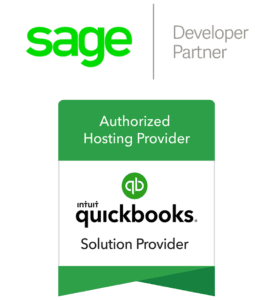
by myCREcloud | Jul 11, 2024 | Company
Choosing the right Managed Service Provider (MSP) can significantly impact your business’s efficiency, security, and growth. With the right MSP, you can streamline your IT operations, enhance cybersecurity, and ensure your systems are running smoothly around the clock. However, with so many options available, it can be challenging to determine which MSP is the best fit for your organization. Here are the key factors to consider when selecting an MSP provider.
1. Expertise and Experience
One of the most critical factors to consider is the MSP’s expertise and experience. Look for a provider with a proven track record in your industry and a deep understanding of your specific IT needs. An experienced MSP will be familiar with the challenges your business faces and can offer tailored solutions.
Questions to ask:
- How long have you been in business?
- Do you have experience working with companies in our industry?
- Can you provide case studies or references from clients with similar needs?
2. Range of Services
Different MSPs offer different levels of service. Ensure the provider you choose offers a comprehensive suite of services that align with your business requirements. These services may include network management, cybersecurity, data backup and recovery, cloud services, and more.
Key services to consider:
- 24/7 monitoring and support
- Disaster recovery and business continuity planning
- Cloud computing solutions
- Cybersecurity measures
- Help desk support
3. Scalability
As your business grows, your IT needs will evolve. It’s essential to choose an MSP that can scale their services to match your growth. Whether you’re expanding your team, opening new locations, or launching new products, your MSP should be able to accommodate these changes seamlessly.
Considerations:
- Can the MSP handle increased workloads and complexity?
- Do they offer flexible pricing models that can adjust to your changing needs?
4. Proactive Approach
A proactive MSP doesn’t just react to problems after they occur; they actively monitor your systems to prevent issues before they arise. Look for providers that use advanced monitoring tools and have a proactive approach to maintenance and support.
Proactive measures include:
- Regular system updates and patches
- Continuous network monitoring
- Predictive analytics to identify potential issues
5. Security Measures
In today’s digital landscape, cybersecurity is more critical than ever. Your MSP should prioritize security and have robust measures in place to protect your sensitive data. This includes firewalls, intrusion detection systems, encryption, and regular security audits.
Security questions to ask:
- What security protocols do you have in place?
- How do you handle data breaches or cyber-attacks?
- Do you offer employee training on cybersecurity best practices?
6. Response Time and Support
Downtime can be costly for any business. Ensure your MSP offers reliable, round-the-clock support with guaranteed response times. Fast and effective support is crucial to minimizing disruption and maintaining productivity.
Key support features:
- 24/7 help desk availability
- Guaranteed response times in Service Level Agreements (SLAs)
- Multiple support channels (phone, email, live chat)
7. Customization and Flexibility
Every business is unique, and a one-size-fits-all approach rarely works. Look for an MSP that offers customized solutions tailored to your specific needs. They should be flexible in their approach and willing to adapt their services to fit your business model.
Customization aspects:
- Tailored service packages
- Flexible contract terms
- Ability to integrate with existing systems
8. Reputation and Reviews
Research the MSP’s reputation in the industry. Look for reviews, testimonials, and any awards or recognitions they may have received. A provider with a strong reputation is more likely to deliver high-quality services and customer satisfaction.
Where to look:
- Online reviews on platforms like Google, Yelp, and industry-specific forums
- Testimonials on the MSP’s website
- Industry awards and recognitions
9. Cost and Value
While cost is an important factor, it shouldn’t be the only consideration. Evaluate the value the MSP provides in relation to their pricing. A slightly higher cost might be justified if the provider offers superior service, advanced security measures, and comprehensive support.
Cost considerations:
- Are there any hidden fees?
- What is included in the pricing plan?
- How does the cost compare to the value of services provided?
10. Communication and Transparency
Clear communication and transparency are essential for a successful partnership. Your MSP should provide regular updates, detailed reports, and be transparent about their processes and policies.
Communication tips:
- Regular status meetings and reports
- Transparent billing and service documentation
- Open and honest communication channels
Conclusion
Choosing the right MSP provider is a critical decision that can have a lasting impact on your business. By considering factors such as expertise, range of services, scalability, proactive approach, security measures, response time, customization, reputation, cost, and communication, you can make an informed choice that aligns with your business goals. Take the time to research, ask the right questions, and select an MSP that will be a true partner in your success.
With the right MSP, you can focus on what you do best—running your business—while they handle the complexities of IT management and support.

by myCREcloud | Jun 12, 2024 | Company
Investing in the right software to manage your construction business is crucial. Construction management software can revolutionize your operations by optimizing resource utilization, supporting informed decision-making, enhancing client service, and ultimately leading to more profitable projects.
However, choosing the right construction software requires diligent research to ensure a wise investment. Achieving a successful outcome involves a comprehensive evaluation to find a solution that aligns with your company’s long-term goals and objectives. It’s important to look beyond your current business needs and consider the future growth and direction of your company.
1. Sage 100 Contractor
Overview: Sage 100 Contractor, previously known as Sage Master Builder, is a comprehensive construction accounting and project management system. It helps contractors manage payments, accounting, payroll, invoices, transmittals, RFIs, and budgets.
Key Features:
- Alert notifications for low bank balances, expiring certificates, and other significant events.
- Over 1,000 built-in reports for monitoring job costs and business performance, with customizable options for deeper insights.
Ideal For: Small to midsize residential and commercial construction companies transitioning from generic accounting software.
Suitable Trades:
- Electrical
- Mechanical
- Heavy Construction
- Service and Specialty Contractors
- Homebuilders
2. Sage 300 CRE
Overview: Sage 300 Construction and Real Estate (CRE), formerly known as Sage Timberline, is a robust construction project accounting and management solution. It covers payroll, billing, inventory, accounts payable/receivable, service management, and job costing for all project phases.
Key Features:
- Advanced accounting, payroll, and document control.
- Features such as timesheet data import, contract management, and document routing.
Ideal For: Midsize to large general contracting companies involved in homebuilding, real estate development, and residential remodeling.
by myCREcloud | Mar 27, 2024 | Company
In the contemporary business landscape, technology has become indispensable for seamless operations. However, grappling with the intricacies of computers, servers, and technical infrastructure often leads to considerable challenges. Managed IT Services emerge as a remedy, akin to enlisting a proficient team of tech specialists to bolster your endeavors. These services encompass a spectrum of benefits:
- Proactive Monitoring and Maintenance: Managed IT Services providers vigilantly monitor and maintain IT systems, preempting potential issues before they burgeon into crises. This proactive approach minimizes downtime, amplifies productivity, and fortifies system dependability.
- Enhanced Security Measures: Safeguarding sensitive data and IT infrastructure assumes paramount importance amidst the escalating threat landscape. Managed IT services furnish robust security measures, including intrusion detection systems, firewalls, and antivirus software, to thwart cyberattacks and data breaches.
- Anywhere Anytime Access: Liberating you from the confines of your desk, Managed IT Services unlock the realm of “Anywhere Anytime Access.” This flexibility empowers remote work, seamless collaboration, and universal accessibility, thereby elevating productivity, agility, and overall business success.
- Scalability and Flexibility: Adapting to the evolving needs of businesses, Managed IT Services offer scalability and flexibility. Providers effortlessly tailor resources and services to synchronize with business requisites, ensuring optimal performance and cost-effectiveness.
- Cost Savings: Outsourcing IT management to Managed IT Services yields substantial cost savings by obviating the necessity for in-house IT personnel, hardware investments, and maintenance expenses. This cost-efficient approach maximizes ROI while minimizing IT-related expenditures.
- Disaster Recovery Planning: Managed IT Services providers engineer comprehensive disaster recovery plans to mitigate the fallout of unforeseen events like natural disasters or cyberattacks. This ensures business continuity, preserves data integrity, and mitigates potential losses and downtime.
- Improved Compliance and Regulatory Adherence: Navigating intricate legal requirements and adhering to industry standards such as PCI DSS, GDPR, and HIPAA is facilitated by Managed IT services providers. This fosters regulatory compliance, mitigates legal risks, and upholds customer trust.
- 24×7 Technical Support: Round-the-clock technical support and help desk services provided by Managed IT Services assure swift resolution of IT issues, ensuring uninterrupted operations and tranquility for businesses, even beyond conventional business hours.
- Focus on Core Business Objectives: Delegating IT management to Managed IT Services liberates valuable time and resources, enabling businesses to concentrate on core objectives and strategic initiatives. This cultivates innovation, growth, and competitive advantage.
- Minimize Network Downtime: The detrimental impact of network downtime on business operations underscores the significance of proactive measures. Managed Service Providers (MSPs) preemptively monitor networks, preempting and remedying issues to forestall downtime.
- Maximize Cloud Computing Capabilities: Leveraging the potential of cloud computing can revolutionize business efficiency and scalability. MSPs facilitate seamless migration to the cloud and optimize cloud investments to harness its full potential.

by myCREcloud | Mar 14, 2024 | Company
The construction industry is all about building strong foundations. But what about the foundation of your data? For many companies, that foundation is built on physical servers humming away in an office corner. While on-premise servers have served us well, the cloud offers a powerful and secure alternative that can transform the way you manage projects while removing the headaches of maintenance, management, patching and security at the server level.
We understand the hesitation. The “cloud” can sound like a mysterious, intangible concept. But fear not! Here’s a breakdown of cloud storage, specifically designed for construction professionals who want to build a more efficient future:
The Cloud: Not As Mysterious As It Sounds
Imagine a secure, off-site storage facility, accessible from anywhere with an internet connection. That’s essentially the cloud! Instead of relying on physical servers in your office, your project data – blueprints, contracts, photos – is stored on powerful servers managed by cloud storage providers. Here’s a simplified step-by-step process:
- Uploading Your Data: Think of uploading files to the cloud like sending an email with an attachment. You use a user-friendly app or website provided by your cloud storage company.
- Securely Reaching the Cloud: Your data travels securely over the internet, protected by strong encryption (think of it as a digital vault).
- Access Anytime, Anywhere: Need to access those blueprints on a job site? Simply log in to your cloud storage account from any device with an internet connection.
- Putting It Back Together: When you request a file, the scattered pieces are retrieved and reassembled, just like downloading an attachment from an email.
Building a Stronger Foundation with Cloud Storage
The cloud offers several advantages that can transform your construction business:
- Enhanced Collaboration: Share plans, documents, and real-time updates with your entire team, from architects to field workers, regardless of location. It’s like having a central, accessible blueprint for everyone involved.
- Improved Disaster Recovery: Imagine a fire damaging your office server. With cloud storage, your data is safe and retrievable from anywhere. It’s like having an off-site backup plan that protects your vital project information.
- Scalability for Growth: Need more storage space as your projects grow? The cloud scales easily to meet your needs. No more expensive server upgrades!
- Increased Security: Cloud storage providers offer robust security measures, often exceeding what individual companies can manage. Your data is like a fortress, protected by the latest security technology.
Taking the First Step: Building Your Cloud Future
Moving to the cloud might seem like a big leap, but a good cloud hosting provider will walk you through the process step-by-step and ensure a smooth transition for all of your users.
The cloud isn’t some nebulous concept – it’s a powerful tool to streamline your construction projects, improve collaboration, and keep your data safe. Let’s build a stronger foundation for your business, together. Contact us today to discuss how cloud storage can benefit your construction company.

by myCREcloud | Mar 6, 2024 | Company
As the dreaded tax season approaches, businesses of all sizes find themselves grappling with the monumental task of preparing their financial records for filing taxes. However, with the advent of cloud-hosted accounting solutions like Sage, this once daunting process has become significantly more manageable. In this blog post, we’ll explore how cloud accounting software can streamline tax season preparation for businesses, providing convenience, efficiency, and peace of mind.
1. Accessibility Anytime, Anywhere
One of the most significant advantages of cloud accounting solutions is the ability to access financial data from anywhere with an internet connection. This accessibility eliminates the need for businesses to be tied to a specific location or device when managing their finances. Whether you’re in the office, at home, or on the go, you can securely access your accounting software and retrieve essential documents needed for tax preparation.
2. Real-Time Data Updates
With cloud accounting, gone are the days of waiting for manual data entry or synchronization. Cloud-hosted solutions like Sage offer real-time data updates, ensuring that your financial records are always accurate and up-to-date. This real-time visibility into your financial data allows you to monitor transactions as they occur, identify potential discrepancies, and make informed decisions—all of which are crucial for tax compliance.
3. Automated Processes
Preparing for tax season often involves repetitive tasks such as categorizing expenses, reconciling accounts, and generating financial reports. Cloud accounting solutions streamline these processes through automation. Sage, for example, offers features like automatic bank feeds, transaction categorization, and customizable report templates, saving businesses valuable time and reducing the risk of human error during tax preparation.
4. Enhanced Collaboration
Tax season preparation often requires collaboration among multiple team members, including accountants, bookkeepers, and financial advisors. Cloud accounting solutions facilitate seamless collaboration by allowing users to grant secure access to relevant stakeholders. Whether it’s sharing financial reports, seeking advice on tax deductions, or collaborating on budget forecasts, cloud-hosted platforms provide a centralized hub for efficient teamwork.
5. Scalability and Flexibility
Businesses experience fluctuations in workload during tax season, with increased demands on accounting resources. Cloud accounting solutions offer scalability and flexibility to accommodate these changes effortlessly. Whether you’re a small startup or a large enterprise, cloud-hosted platforms like Sage can scale up or down based on your needs, ensuring that you have the necessary resources to handle tax season efficiently.
6. Robust Security Measures
Security is paramount when dealing with sensitive financial data, especially during tax season. Cloud accounting solutions prioritize data security through robust encryption, multi-factor authentication, and regular data backups. Platforms like Sage adhere to industry-leading security standards, providing businesses with peace of mind knowing that their financial information is protected against cyber threats and unauthorized access.
Conclusion
In conclusion, cloud-hosted accounting solutions like Sage have revolutionized the way businesses prepare for tax season. By offering accessibility, real-time data updates, automation, collaboration tools, scalability, and robust security measures, these platforms empower businesses to streamline tax season preparation, minimize errors, and focus on strategic initiatives. As tax season approaches, businesses can leverage cloud accounting software to navigate the complexities of tax compliance with confidence and ease.

by myCREcloud | Jan 23, 2024 | Company
The cloud remains the go-to transformation platform for companies aiming to lead the pack and embrace the latest game-changing technologies. From GenAI and automated shop floors to software-defined vehicles and smart meters, the tech innovations set to shake up industries demand robust cloud capabilities and a deep understanding of cloud evolution.
Here are some predictions about the cloud’s evolution:
- Cloud is set to elevate edge computing, especially with ultra-low latency through 5G. This strategic shift combines cloud infrastructure with edge capabilities, offering agility and economic efficiency. Examples include automakers enhancing vehicle computing capabilities and real-time processing on factory floors.
- Growing interest in cloud economics will lead to more tailored cloud portfolios for enhanced ROI. In 2024, CFOs and COOs will steer the cloud consumption narrative, focusing on optimizing ROI through a cost-conscious yet value-driven approach, especially with the help of advanced analytics and automation from GenAI.
- Accelerated industry cloud adoption will transform healthcare, finance, and highly regulated industries. Specialized cloud solutions enhance data security, ensure compliance, and modernize IT, accelerating innovation and operational efficiency. Industry clouds are becoming a linchpin for businesses in their digital transformation journey.
- Multicloud and hybrid cloud are set to outshine single-cloud models in 2024, becoming crucial not just for a competitive edge but also for regulatory compliance. To make the most of multi-cloud, businesses need solid protocols, including tight data management, advanced security, smooth workload mobility, and comprehensive governance.
- Interactive AI is gearing up to revolutionize customer service in 2024, leveraging cloud power for enhanced GenAI interaction capabilities. We might see the world’s first zero-touch call centers, taking customer service to a whole new level with tasks beyond traditional chatbots.
In 2024, the cloud will remain a strong value driver for enterprises seeking to innovate rapidly, harmonize their data, and deliver new forms of value to customers.






